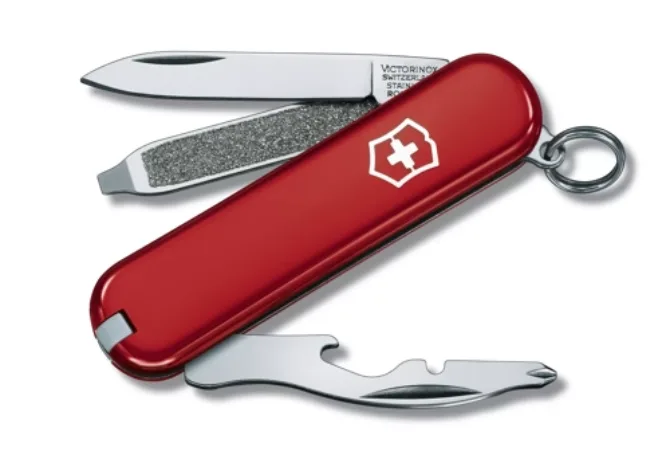
Trump Capitalizes on Simmering Resentment From Economic Class Divisions
The American electorate is often described as divided along partisan lines, sometimes marked by geography – urban versus rural, blue state versus red state. There is credible evidence to suggest the division runs deeper and is based on class, education and animosity that transcends geographical, political, religious and racial differences.
Social scientists say partisanship has hardened into polarization because partisans have transformed policy disagreements into a visceral dislike of their opponents.
 “It’s feelings based,” explains Lilliana Mason, a political scientist at Johns Hopkins University and author of Uncivil Agreement: How Politics Became Our Identity. “It’s polarization that’s based on our feelings for each other, not based on extremely divergent policy preferences.”
“It’s feelings based,” explains Lilliana Mason, a political scientist at Johns Hopkins University and author of Uncivil Agreement: How Politics Became Our Identity. “It’s polarization that’s based on our feelings for each other, not based on extremely divergent policy preferences.”
In social and media bubbles, dislike can evolve into animosity as opponents morph into caricatures and bipartisan cooperation is viewed as betrayal.
Forming groups is a fundamental human adaptation to survival. Overcoming obstacles can be the impetus for cooperation, but as time passes and stability is achieved, groups begin to separate. Over time, groups that once cooperated become rivals and, eventually, bitter foes.
“We wouldn’t have civilizations if we didn’t create groups,” Mason says. “We are designed to form groups, and the only way to define a group is there has to be someone who’s not in it.”
Affective Polarization
“In this political environment, a candidate who picks up the banner of ‘us versus them’ and ‘winning versus losing’ is almost guaranteed to tap into a current of resentment and anger across racial, religious and cultural lines,” Mason says.
 Stanford political psychologist Shanto Iyengar calls this phenomenon “affective polarization”, where individual feelings and emotions towards members of their own political party or group become more positive, while their feelings towards members of the opposing party or group become more negative.
Stanford political psychologist Shanto Iyengar calls this phenomenon “affective polarization”, where individual feelings and emotions towards members of their own political party or group become more positive, while their feelings towards members of the opposing party or group become more negative.
Batya Ungar-Sargon, opinion editor at Newsweek, believes the partisan dividing line in America today is not Democrat or Republican, but economic class. Ungar-Sargon traces the deepening divide in politics to working-class voters who feel betrayed by “elites” in both major political parties.
It’s an “us” versus “them” battle line, and the flash point for this class-centered anger is immigration.
There is no better evidence than Donald Trump’s political success in railing against immigrants and calling for a massive wall. Trump began his political campaigns by bashing immigrants and has continued to bash them. He has a lot of bogeymen in his repertoire, but none are more potent than illegal immigrants who, according to him, are “poisoning the blood” of America.
Before Trump entered politics, the GOP was the party of Reagan favoring free trade, free markets, corporate primacy and projecting American military might around the world, Ungar-Sargon says. “Trump basically took an axe to all of that neoliberal order” and, as a consequence, tapped into pent-up resentment in white, working-class voters who felt betrayed by college-educated elites.
 The clash of class helps explain why Black Americans and Latinos increasingly buy into Trump’s message that helping immigrants comes at their expense.
The clash of class helps explain why Black Americans and Latinos increasingly buy into Trump’s message that helping immigrants comes at their expense.
The clash of class helps explain why
Black Americans and Latinos
buy into Trump’s message.
The Marxist Irony
Trump and other right-wing politicians love to call their opponents Marxists. The irony is that appealing to class struggle is at its heart a Marxist principle. Karl Marx viewed class struggle as endemic to capitalism as owners who control production and workers who earn wages battle for a financial edge.
There is a reason the so-called “donor class” in the Republican Party has tried to lift up the political candidacy of Nikki Haley in opposition to Trump. They favor the conservatism of Reagan as opposed to the illiberalism of Trump.
 Trump deflects his own Marxist appeal to class struggle by condemning the “shared wealth” philosophies of Democrats while advocating for tax policies that benefit upper-income Americans.
Trump deflects his own Marxist appeal to class struggle by condemning the “shared wealth” philosophies of Democrats while advocating for tax policies that benefit upper-income Americans.
It’s a political magic act that few politicians can perform, and evener fewer perform as well as Trump, who has cast a spell on a third or more of the American electorate, enough to wrap up the 2024 GOP presidential nomination before March.
The Criminal Irony
In movies, outlaws are often portrayed as heroic. One reason is they are seen as rebels against authority. They especially appeal to audiences who feel disillusioned with societal norms and government institutions.
This explains why Trump’s presidential campaign and war chest benefitted each time new indictments were handed down against him. His mugshot in an Atlanta jail became hot campaign merchandise. His rants against judges and prosecutors outside courtrooms are free political television ads that stoke resentment against the “deep state” by his fervent supporters.
 Facing claims of fraud, defamation, obstruction, racketeering and illegal possession of national secrets, Trump depicts himself as a “victim”. He refers to himself as a “savior” for America’s downtrodden and forgotten. Both are designed to appeal to voters who feel victimized.
Facing claims of fraud, defamation, obstruction, racketeering and illegal possession of national secrets, Trump depicts himself as a “victim”. He refers to himself as a “savior” for America’s downtrodden and forgotten. Both are designed to appeal to voters who feel victimized.
Earlier in his political career, Trump bragged about being one of America’s wealthiest and successful titan of business. Now, he rarely brags about his wealth and his business acumen. It doesn’t fit with his new populist imagery of victim and savior.
Political Outlier or Pathfinder?
Beyond who wins the 2024 presidential election is the question of what the Trump legacy will be on the Republican Party and America. His time will come and go, as it does for all politicians, but will his legacy of provoking class struggle live on?
Perhaps more important, will Trump’s burnt-earth politics make the ground for political cooperation and compromise perpetually fallow?
The answers lie with how politicians and leaders not named Trump respond to America’s affective polarization rooted in a class struggle.




